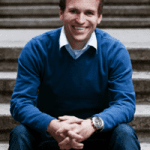The video interview (which was only broadcast online) from Lauren Green of Fox News of Reza Aslan is a train wreck of an interview and it must have been painful for both the interviewer and the interviewee, much though it has benefited the latter. In case you missed it, a long-serving but relatively anonymous Fox News religion journalist, Lauren Green, had Reza Aslan on her show to discuss his new book, Zealot: The Life and Times of Jesus of Nazareth. She cues up the interview by noting that Aslan was a Christian for a time, who converted back to Islam, “the faith of his forefathers.” She asserts that the book is controversial because it “calls into question some of the core tenets of Christianity.” (One must wonder at this, because a book from one of the Brahmins of secular academe would be controversial if it did not call into questions the core tenets of Christianity, as calling those into question is, by now, an exceedingly well worn route to media attention, pop-academic celebrity, perhaps even the cover of some once-respected newsmagazine, and therefore increased book sales.)
If the roles were reversed, and it were conservatives criticizing the beautifully dark-skinned Ms Green, then it would be a simple matter of accusing the conservatives of racism and moving on. (I keed, I keed.) Since this is not so, let’s roll tape…Green begins the interview by asking: “You’re a Muslim, so why did you write a book about the founder of Christianity?”
This was a question about motives and not about qualifications — and a perfectly legitimate question in itself (later questions were less so, in my view). Academics are certainly not above having their motives examined. It seems to me that any scholar of religion who’s seriously committed to intellectual integrity ought to examine her own motives openly and be transparent about how her own religious commitments (either for or against the tradition she is studying) might shape the outcomes of her scholarship. To his credit, Aslan discloses his Muslim faith at the outset of the book. But the very personal way in which he frames the book makes the entire book an exercise in fleshing out the reasons (or at least the intellectual justification) why he left Christianity and returned “home” to Islam — and this makes it even more peculiar that he should grow indignant at the question posed. To his discredit, then, Aslan responds to this question with repeated and very strongly emphasized references to his academic credentials.
Now, Reza and I have many things in common. We both studied religion as undergraduate students, as master’s students, and as doctoral students. Although he appears to be slightly older than I am, we both completed our doctorates (he at UCSB and I at Harvard) in 2009. We both believe that academics must do more to engage the public square. I’m sure I’d love to have a beer with him. So I want to give the benefit of the doubt: video interviews do not always present us at our best. But I found his huffing about his degrees inelegant and unbecoming.
Let’s imagine how he might have responded: “I chose to write this book because I find the founder of Christianity fascinating, inspiring and important. To be clear, yes, I am a Muslim, but I seek to be as objective as I possibly can, just as a Christian scholar writing about Islam would. But ultimately my conclusions stand or fall on their own merits and not on whether I’m Muslim or Christian or anything else.” But this was his response, as well as the followup (emphases in the original):
RA: “Well, to be clear, I am a scholar of religions with FOUR degrees, including one in the New Testament, and fluency in biblical Greek, who has been studying the origins of Christianity for two decades, who also just happens to be a Muslim…I am an expert with a PhD in the history of religions…”
LG: “It still begs the question, why would you be interested in the founder of Christianity?
RA: “Because it’s my job as an academic. I am a professor of religion, including the New Testament. That’s what I do for a living, actually.” “I’ve been studying his life and his work, both in an academic environment and on a personal level, for two decades.” “Anyone who thinks this book is an attack on Christianity has not read it yet…and to be clear, I want to emphasize this one more time. I am a historian. I am a PhD in the history of religions…This is an academic work of history.”
There are several things worth questioning here:
- No, it’s not your job as an academic to be interested in the founder of Christianity. You can investigate and write on thousands of topics, but you chose to write a book on the founder of Christianity. It’s perfectly permissible to ask why. Muslims can write excellent books on Christianity, just as Christians can write excellent books on other traditions. But motives should be open to inquiry. And I think it’s facile to say that I “just happen to be a Muslim.” Your faith both shapes and is shaped by your research. To pretend otherwise is, I think, naive.
- While it’s a permissible question, and I don’t think Aslan had to grow so indignant, I don’t think it’s an especially important question. Whatever his motive, whatever his own faith background, Aslan may be right. It’s the arguments and evidence that are important.
- It’s not unreasonable at all to read this book as an “attack on Christianity.” In a recent interview, Reza previewed the conclusions in the book thus: “I’ve come to the conclusion, in twenty years of academic research, that there was absolutely nothing special, unusual, or extraordinary about Jesus of Nazareth. He was one of dozens of people who were saying the exact same things, doing the exact same things, performing the exact same miracles, in this incredibly turbulent time and place called first-century Palestine.” Or as he says in the opening of the book itself, he has come to the conclusion that the Evangelical Christianity he experienced in his youth is “patently and irrefutably false,” because “the Bible is replete with the most blatant and obvious errors and contradictions.” There is no serious engagement here with Christian responses to these kinds of arguments, which have been around for millennia. In fact, very conveniently, Reza in the Author’s Note at the beginning of the book relieves himself of the responsibility of discussing opposing viewpoints in the body of the book. There are much stronger attacks on Christianity, but I fail to see how no one could read the book and believe it’s an attack on Christianity.
- Joe Carter at GetReligion raised the question of whether Reza is misrepresenting his credentials, because he calls himself “a historian” with a PhD in “the history of religions” but his PhD is in sociology and he wrote his dissertation on modern Islam and terrorism. Joe has gotten a lot of push-back from scholars of religion themselves, and I would echo some of their comments, but I think Reza is giving (at least) a self-serving gloss on his academic credentials. I’ll explain why in the next post. (For what it’s worth, there appears to be an old but also-self-serving description of his credentials in the “From the Author” portion of Reza’s author page at Amazon.) I would not regard Reza as an expert in New Testament or early Christian history, certainly not like a Peter Brown or an N.T. Wright — or a Ben Witherington or Scot McKnight or Mark D. Roberts, for that matter, all of whom confronted the same questions Reza did as an undergraduate, came to different conclusions than Reza did, and remained believers.
I’m going to examine the question of credentials and self-representation in the next post, mostly because it speaks to the position of religious studies within the modern university, but I’m still not sure his credentials are that important. He wrote a book. We have the book in front of us. Either it makes sound arguments, or it does not. For the most part, from what I’ve seen so far, it does not. We can examine the book’s merits directly in the post that follows.
http://www.youtube.com/watch?v=AQhMllQ-ODw











